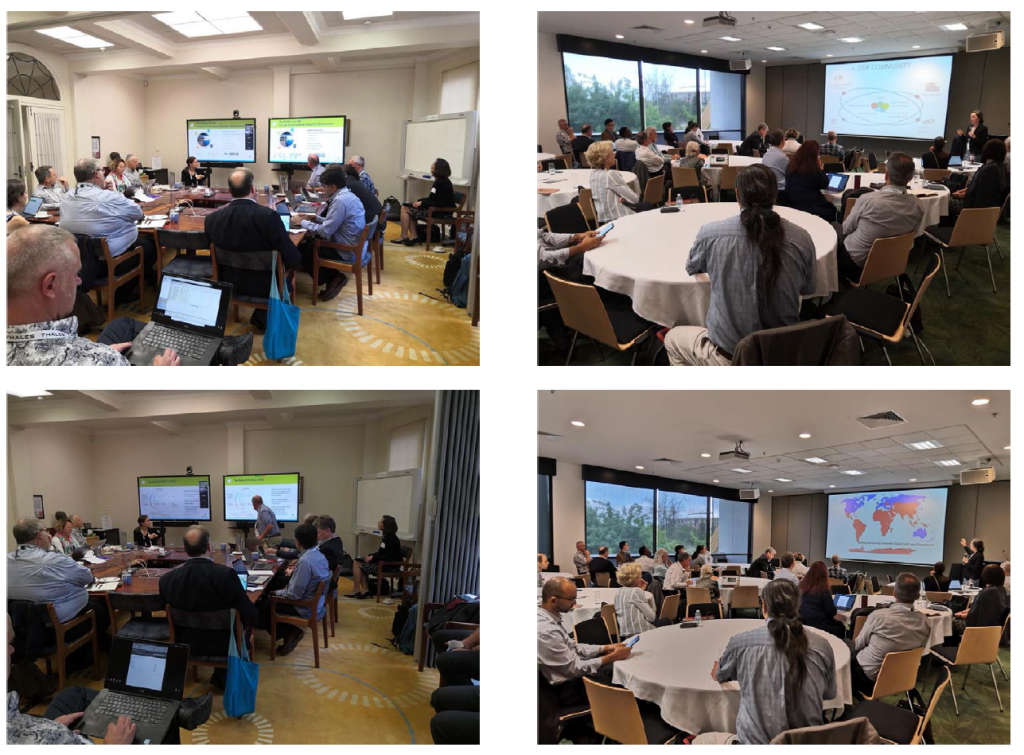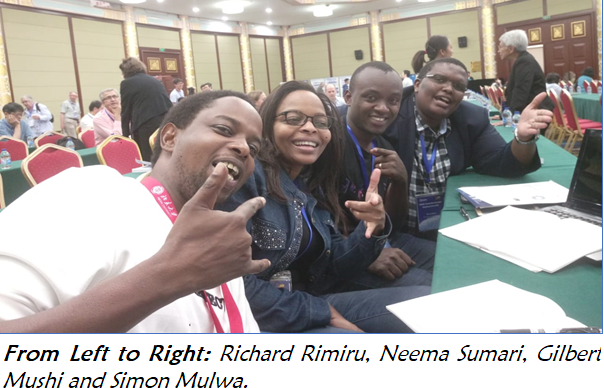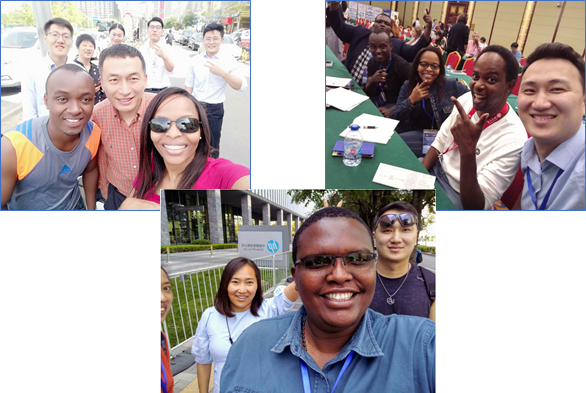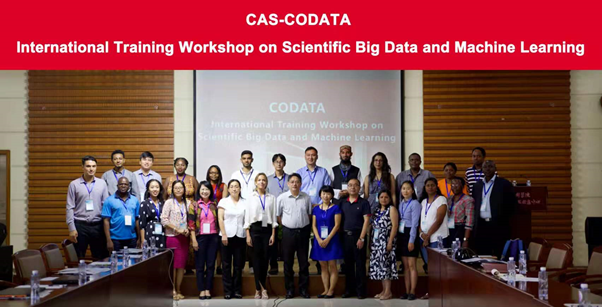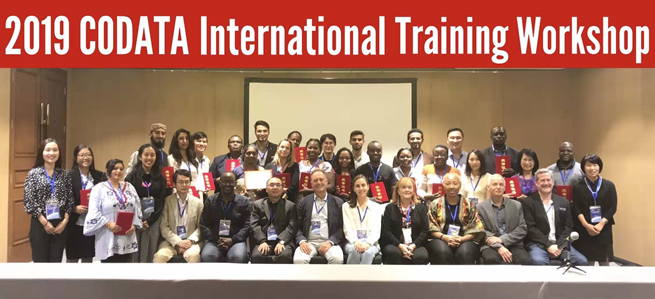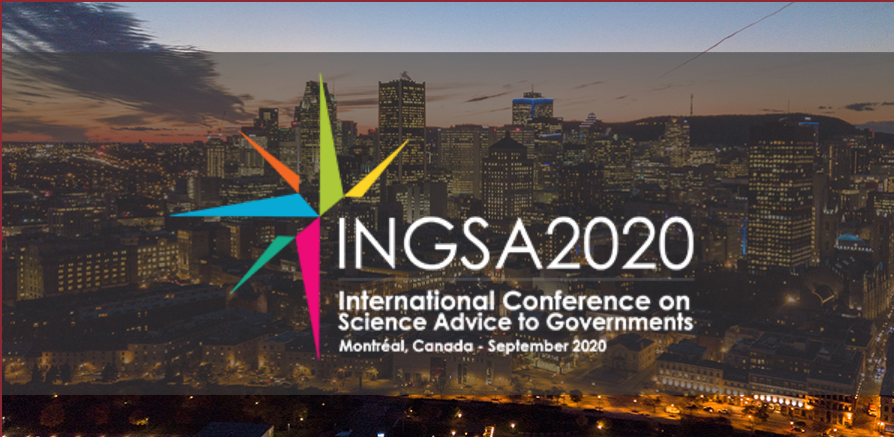Registration is now open for the RDAP (Research Data Access and Preservation Association) 2020 Summit in Santa Fe, NM! The Summit, which will take place at the Santa Fe Convention Center, will run March 11 and 12, with an additional day of workshops on March 13. Registration for the Summit is $209; workshops are an additional $50 each, although one is being provided free of charge thanks to a grant from the Institute of Museum and Library Services. You can also now view our program schedule, including on Sched.
Author Archives: codata_blog
North American DDI conference Call for Proposals now open!
We are happy to announce the Call for Proposals for the 8th Annual North American Data Documentation Initiative Conference (NADDI). The Data Documentation Initiative (DDI) is an international standard for describing the data produced by surveys and other observational methods in the social, behavioral, economic, and health sciences.
![]()
NADDI 2020 Theme
The conference theme is “Making Data FAIR by using Metadata Standards.”
The main conference sponsor is IPUMS at the University of Minnesota Institute for Social Research and Data Innovation.
Aimed at individuals working in and around research data and metadata, NADDI 2020 seeks submissions of presentations and posters that highlight the use of DDI and other metadata standards within research projects, official statistics, survey operations, academic libraries, and data archives.
Proposals can include:
- Presentations
- Panels
- Posters
- Workshops or Tutorials
Important Information
- March 6: Deadline for conference proposals
- March 31: Notification of acceptance
- May 31: Early rate registration deadline
- Conference Dates: June 17-19, 2020
- Conference Location: Minneapolis, Minnesota
How to Submit
Submissions may be made through the conference web site. The proposal deadline is March 6, 2020.
Data for our planet: Increasing the use and value of global information infrastructures to support resilient cities, disaster risk reduction and infectious diseases
- Erin Robinson – Earth Science Information Partners (ESIP)
- Dr Steven McEachern – Australian Data Archive, ANU
- Alena Rybkina – Committee on Data of the International Science Council (CODATA)
- John Broome – Committee on Data of the International Science Council (CODATA)
- Francoise Perlman – FourBridges
- Dr Ben Evans – National Computational Infrastructure (NCI)
- Magdalena Brus – Integrated Carbon Observation System (ICOS) European Research
- Infrastructure Consortium (ERIC), ENVRI
SUMMARY:
- Building on the FAIR principles, this session explored a series of pilots and initiatives currently underway to develop data infrastructures and to increase collaboration and access to the increasing surge of data currently being captured globally. There has been some headway in the global north, but less in the global south.
- Collaboration was identified as a major obstacle to increase cross-institutional, multi-disciplinary and international access to de-fragment the data landscape.
- By improving the access and collaboration across disciplines, it will be possible to better address socioeconomic problems such as responses to infectious diseases, disaster risk reduction and building resilient cities.
- Using the FAIR principles to unify data across a range of sources and data types requires the development of pilots to test how this unification and inter-operability of data would be undertaken.
- It is important to recognize how different disciplines can offer insights to different data problems or questions, but still work together to address larger societal problems.
- As the amount, quality and type of data available grows rapidly, it is equally important to ensure that the data infrastructure grows with it in order to process it. At the moment, the infrastructure is somewhat lagging behind.
- By developing and investing in the data infrastructure, it is possible to make the data easier to access and use, and make the data smarter and better targeted to the problems it is used to address. However, there are challenges for business models, societal models and policy/governance issues. Of serious concern is that the people working on the policy around data and data infrastructure cannot keep up or understand the challenges.
- While there are many groups working towards de-siloing data and data infrastructure, there needs to be an umbrella approach to avoid duplication of efforts and unify the approach. CODATA is leading the design and execution of a Decadal Programme that will address the data interoperability challenge identified in the International Science Council’s 2019-2021 Action Plan. The Decadal Program is currently being developed to address this issue and is seeking expressions of interest to help in its development.
- The session brought together individuals from around the world and many different organisations who are interested in addressing this concept of a multi-disciplinary, democratization of data.
- During discussion there was some concern regarding ethical issues around data accessibility and sharing that still needs to be addressed.
QUOTES: John Broome (CODATA): ‘Partnerships will be critical. Clearly no one organisation can hope to achieve the overall goal.’
ABSTRACT:
Accessing and integrating data from heterogeneous sources is a significant barrier facing evidence-based responses to global grand challenges. To address this ISC-CODATA is preparing an international, coordinating research program; ESIP has developed a community of practice around earth science data standards; and ENVRI aims to align and share FAIR compliant in-situ data and services. This workshop will 1) invite the GEO community to engage with these initiatives; 2) examine specific challenges relating to data accessibility, interoperability and reusability (FAIR); and 3) examine these issues around a set of pilot case studies, including infectious diseases, resilient cities and disaster risk reduction.
Grand challenges need to access and integrate data from many different sources. Discovery and interoperability mechanisms are frequently suboptimal. Time and space is usually a key to integration, and remote sensing and in-situ Earth observation data play a crucial role. The session will allow detailed exploration of the issues in relation to case studies of significance to the GEO community. The workshop will explore the applicability and potential of the FAIR principles, ‘fitness for use’ criteria, Operational Readiness Levels, alignment of metadata specifications, and data cubes to contribute towards the solutions needed to assist data integration.
PRESENTATION:
Please find the presentation here.
Organizers
- International Science Council – ISC
- CODATA – Committee on Data of the ISC
- ESIP – Earth Science Information Partners (US)
- ARDC – Australian Research Data Commons
- The National Committee for Data in Science (NCDiS) of the AAS – Australian Academy of science
- AuScope
- NCI – National Computational Infrastructure (Australia)
- CSIRO (Australia)
- The European Environmental Research Infrastructure Community (ENVRI
Contact
John Broome (CODATA), Erin Robinson (ESIP) (johnhbroome@gmail.com, erinro
Henry Mibei: Report on attendance at CODATA conference
Name: Henry Mibei
Designation: Operations Manager Mobile, Africa
Organization: CAB International
CODATA 2019 conference: Towards next-generation data-driven science: policies, practices and platforms
Background:
CODATA exists to promote global collaboration to improve the availability and usability of data for all areas of research. CODATA supports the principle that data produced by research and likely to be used for research should be as open as possible and as closed as necessary. CODATA works also to advance the interoperability and the usability of such data: “Research data should be intelligently open or FAIR”. By promoting the policy, technological and cultural changes that are essential to make research data more widely available and more usable, CODATA helps advance ICSU’s mission of strengthening international science for the benefit of society. The conference, themed, ‘Towards next-generation data-driven science: policies, practices and platforms’ was organized by CODATA and CODATA-China with support from the Chinese Academy of Sciences (CAS), Ministry of Science and Technology (MOST) of P. R. China, China Association for Science and Technology (CAST), and National Natural Science Foundation of China. The conference attracted more than 300 participants from six continents and representing 45 countries.
Objective of the Conference
This conference provided a significant opportunity to survey and examine developments in open data policies from a global perspective.
My Objectives
- To present a The paper was accepted for publication in the Data science journal. http://datascience.codata.org/.
- To build networks with academics and experts and to share thoughts on advances and technological breakthroughs for future business
- To increase visibility of CABI the organization I work for, and CODATA who sponsored my attendance in the conference
Science globally is being transformed by new digital technologies. At the same time addressing the major global challenges of the age requires the analysis of vast quantities of heterogeneous data from multiple sources. In response, many countries, regions and scientific domains have developed Research Infrastructures to assist with the management, stewardship and analysis. These developments have been stimulated by Open Science policies and practices, both those developed by funders and those that have emerged from communities. The FAIR principles and supporting practices seek to accelerate this process and unlock the potential of analysis at scale with machines.
Benefit to attending the Conference
Attending the conference gave me an opportunity to showcase my research findings in open science space. Networking and exposure also gave me an opportunity for future collaboration. It was an opportunity to increase the visibility of CABI and CODATA.
- Interacting with researchers and experts in this International forum was a good way of increasing CABI’s visibility in the data science space, a current and trending area for business
- CABI as the current host of the GODAN secretariat, which advocates for open data and open access policy as well as release and reusability of data for improved environmental and social outcomes needs to be more represented in similar forums to showcase our strengths in data science as we week new partnerships in the My attendance to the conference was a benefit to CABI.
- CABI’s research is diverse and large quantities of data are gathered and generated therefore maintaining a good relationship and publishing in the CODATA science journal and other affiliated journals gives CABI more options to publish data science related work in a wide array of journals improving knowledge access and
Title of Presentation(s):
Session Title: Building resilience on food security and nutrition through Open Data https://conference.codata.org/CODATA_2019/sessions/143
| Beijing – China | Kenya – Nairobi |
| Room No. 10, Friendship Palace Date: Sept. 20, 2019
Time: 11:30 am – 13:00 pm Time: 14:00 pm – 15:30 pm |
Room: KALRO Hqts Board Room Date: Sept. 20, 2019
Time: 6:30 am- 8:00 am Time: 9:00 am – 10:30 am |
Programme
| Session Introduction
143: Building resilience on food security and nutrition through Open Data |
Facilitator: Henry Mibei |
Onsite Presentations
| 1 | 407: A governance and data stewardship framework for FAIR agricultural data: The | Paul James Box Paul.j.box@csiro.au | Paul James Box , Kerry Levett , Bruce Simons , Megan Wong |
| Agricultural Research Federation
(AgReFed) – an Australian research infrastructure case study |
|||
| 2 | 476: User-centered design in development of Decision support tools: Lessons from the development and deployment of a Fertilizer Optimization tool for fertilizer use by smallholder farmers in Africa | Henry Mibei h.mibei@cabi.org | Henry Mibei, Harrison Rware |
| 3 | 479: Agricultural Sector Transformation: Mobile Applications for Smallholder Farmers# | Simon Mutuku Mulwa simon.mulwa@kalro.or g | Irene Wambui Kimani, Simon Mutuku Mulwa, Boniface Akuku |
| 4 | 514: Manipulation and Handling of genomics big data to next generation data Science | Muhammad
Abdul Rehman Rashid rashidpdg@hotmail.co m |
Muhammad
Abdul Rehman Rashid |
| Remote Presentation Audio- Kenya KALRO HQTs Boardroom | |||
| 1 | 458: Improving Agricultural Policies and Decisions in Kenya using Data Cube Architecture | Boniface Okelo Akuku boniface.akuku@kalro. org | Boniface Okelo Akuku, Boniface Okelo Akuku, Kenneth Mubea, Brian Killough |
| 2 | 527: Communicating Data: Evidence from Lessons and Experiences of Agricultural Science and
Technology Indicators |
Virginia Wangari Ndungu | Virginia Wangari Ndungu, Irene Wambui Kimani |
| 3 | 484: Small Holder Farmers Reap Big: Kenya Agricultural Observatory Platform | Irene Wambui Kimani irenewarui@yahoo.com | Irene Wambui Kimani, Boniface A Akuku, Joseph Wafula |
| 4 | 515: Mitigating the effects of climate change through early warning and monitoring systems: A case of the small holder farmer in Kenya | Morris Gatheru morris.gatheru@kalro.o rg | Morris Gatheru, Boniface Akuku, Irene Kimani |
| Closing remarks- Way Forward, All | |||
This session was primarily chaired by Henry Mibei where eight papers were presented, four papers onsite and four presented remotely. Henry noted that resilience building will require the use of timely and accurate data/information that leverages on technologies that build on agro-ecological knowledge and the entire agricultural value chain layers comprising farmers, environment information and agricultural practices. Henry presented a paper on designing user-centered decision support tools for agriculture outlining the lessons from the development and deployment of a fertilizer optimization tool. HM outlined that any digital product should be developed considering user’s requirements, objectives and feedback. “If we don’t solve real problems for our users, they’re not going to give us business. Design has to do with intention and that intention is always to solve a human problem. Successful systems and products begin with an understanding of the needs and requirements of the users”.
Highlights:
- Information ranging from climate and rainfall patterns, droughts, trends in crop pests and diseases to the number of farmers in a particular area should be put in the public domain so that it can be easily accessed to facilitate decision-making
- There is often too much information available to make a clear decision, with so much data to sort through, you need something more from the There is a need then to think about the capacity to analyse data and to apply that information to decision-making.
- Open data is crucial in modernizing food production systems and governments in particular should strive to make it accessible especially to the smallholder
- Question on sustainability of donor projects emerged e. being able to perform and deliver project benefits to the primary target group after the funding from a donor terminates. What should be done? Sustainability requires long term planning to facilitate diverse donor engagement and to improve institutional capacity of the target population. It is important to integrate sustainability aspects in the project right from the beginning. This will help to develop partnerships and relations with relevant stakeholders at an early stage of project development and ensure that once the primary funding terminates there is a strong support to continue delivering project’s objectives. It is also important to involve key stakeholders in program development. As part of the project activities initiate multi-stakeholder dialogue workshops should be conducted to involve relevant people in the project.
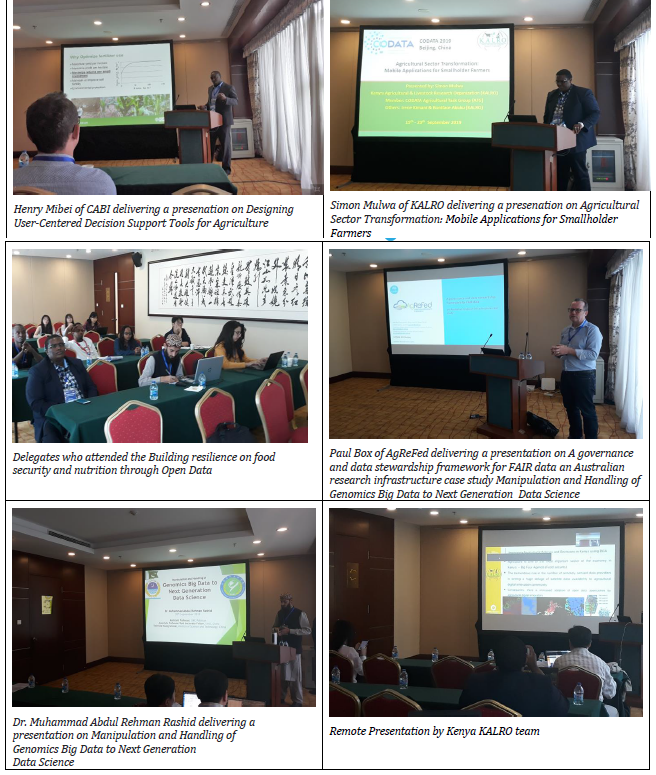
Benefits/Value add to CODATA
- The visibility of CODATA was quite excellent
- This was an opportunity for CODATA to increase its visibility to more than 300 delegates and the rest of the world that never came through the
- CODATA was acknowledged in my presentation slides and the presentation was also linked to a story published in CABI’s website accessed in the link https://www.cabi.org/news-article/fertilizer-optimization-tool-to-increase-farmers- yields-highlighted-at-codata-2019-conference/
- CABI has a global presence, with 500 CABI staff in different continents.
- Refer to Henry Mibei’s presentation, co-written with Rware, ‘Desig ning User –Centered Decision Support T ools f or Agriculture’ which is downloadable from the SCRIBD platform.
- CODATA acknowledged in the publications that will be sent to the patterns and the CODATA Science
- Publicity through social media is as below;
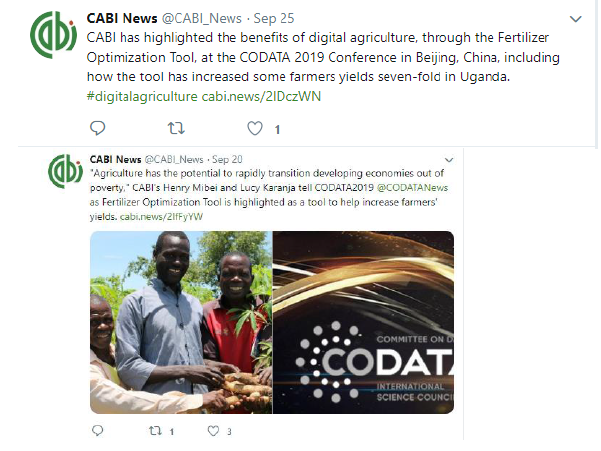
Delegates at CODATA 2019 Conference, Friendship Hotel Beijing China, 19th September 2019
Contacts/Collaborations
Conveners: CODATA, CODATA China
Supporter: Minister of Science and Technology (MOST), Chinese Academy of Sciences (CAS), NSFC
Local organizer: Computer Network Information Center, CAS; National S&T Infrastructure Center, MOST
The CODATA Beijing 2019 Workshop Experience
Open Data is going to help launch more startups. It’s going to help launch more businesses … It’s going to help more entrepreneurs come up with products and services that we haven’t even imagined yet”. (The former US President Barack Obama, May 9, 2013).
This is our CODATA 2019, Beijing, China Story: Richard Rimiru, Neema Sumari, Simon Mulwa and Gilbert Mushi.
We are “The 4 Musketters from East Africa”, Two Tanzanian from Sokoine University of Agriculture (SUA), Neema Sumari and Gilbert Mushi and Two Kenyans; Richard Rimiru from Jomo Kenyatta University of Agriculture and Technology (JKUAT) and Simon Mulwa from Kenya Agricultral Livestock Research Organization (KALRO), at the time of writing.
The CODATA & CAS International Training Workshop on Scientific Big Data and Machine Learning was a great opportunity for us to work together along with other 21 other students from different countries in the world from different professional and academia backgrounds. The Training Workshop was amazing, we learned, practised and exchanged academic knowledge as well as building on our existing networks and expertise.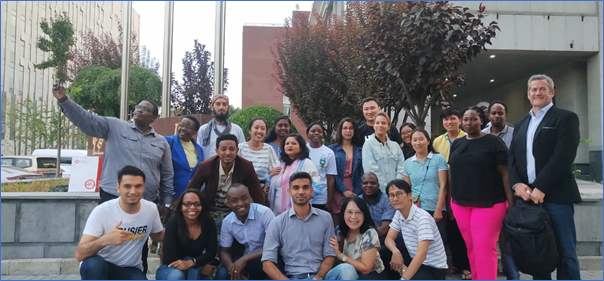
The workshop introduced us to various aspects of Scientific Big Data and Machine Learning with hands on experience: This has stimulated our sureness to start working with these concepts in our environments. We can now start looking into implementing Data science, Visualization, Machine learning and Artificial Neural Networks in our university curriculum & work environs.
The CODATA-CAS workshop in Beijing, China, in September 2019, was the best for us. We wanted to learn and meet new people, ideas and experience different cultures. We are thankfull to CODATA and CAS for their genuine support in attaining these goals. It has been amongest the best experiences in our live’s. We created strong friendships that we hope we will be able to maintain over the next few years if not for lifetime.
As our friend “Batzaya” from Mongolia Would Say, “Wakanda Forever”, Then we say “CODATA Foever”.
The main activites in the training workshop were spread into two weeks of both class room and hands on experience. To mention afew; Data Visualization at Peking University by Professor Xiaoru Yuan was an outstading and novelty which really crowned the training workshop. We look into the future of experiencing some novelty again and again if given the chance.
At the closing session ceremony, Dr. Simon Hodson, Executive Director of CODATA, asked the participants: “so, what have you learned? and what will you do next?” What we have learned was the idea of Open Science and its FAIR Data Principles was a major key to workshop and Conference. We’ve learned different issues on why data can be shared, how it can be analyzed, which data has long term value as well as benefits of storing, protecting, sharing, and publishing data among research scientists. It’s true that most of the researchers would like their data to be publicly stored and accessible by other researchers, however, this is not easy for researchers who do not have clearly defined ways to do this, or do not know, how to make their data accessible to others. Knowledge of data management plans for the hosting research institutes is required to ensure that researchers can define ways to store their datasets in a publicly accessible way after their experiments and publishing are done. Once the research data is stored in a publicly accessible manner, it then needs to be preserved in a format which can be reused by other researchers. In this workshop, the courses that were taught were: Programming-in-R, Cloud Computing, UNIX Shell, ggplot2, Data Visualisation, SQL, Machine Learning, Data Science, Artificial Neural Networks, Particle accelerator, Research Computational Infrastructure, HOC and HTC, Research Data Management. These courses gave us very good skills and knowledge about Data Science which can help us to facilitate the sharing of data – it was great experience. The team understood why open access and data sharing is important in todays data space.
Lastly but not the least, was the wonderful arrangements done by Ms. Wang Ting in assisting us with any logistical challanges occurring during the practical sessions. This was an outstanding style from her. It was one of the most enjoyable and informative moments of our lives.
Thanks to CODATA, and CAS for your support and as well as to all our fellow participants for making it possible and fun.
“We Meet, We Learn, We connect, We Fall in Love”
“The 4 Musketters from East Africa”.
December 2019: Publications in the Data Science Journal
December 2019: Publications in the Data Science Journal
 Title: The Norwegian National Ground Segment; Preservation, Distribution and Exploitation of Sentinel Data Title: The Norwegian National Ground Segment; Preservation, Distribution and Exploitation of Sentinel DataAuthor: Trygve Halsne, Lara Ferrighi, Bard Saadatnejad, Nico Budewitz, Frode Dinessen, Lars-Anders Breivik, Øystein Godøy URL: http://doi.org/10.5334/dsj-2019-061 |
|
 Title: “Data Stewardship Wizard”: A Tool Bringing Together Researchers, Data Stewards, and Data Experts around Data Management Planning Title: “Data Stewardship Wizard”: A Tool Bringing Together Researchers, Data Stewards, and Data Experts around Data Management PlanningAuthor:Robert Pergl, Rob Hooft, Marek Suchánek, Vojtěch Knaisl, Jan Slifka URL: http://doi.org/10.5334/dsj-2019-059 |
|
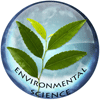 Title: A Discussion of Value Metrics for Data Repositories in Earth and Environmental Sciences Title: A Discussion of Value Metrics for Data Repositories in Earth and Environmental SciencesAuthor: Cynthia Parr, Corinna Gries, Margaret O’Brien, Robert R. Downs, Ruth Duerr, Rebecca Koskela, Philip Tarrant, Keith E. Maull, Nancy Hoebelheinrich, Shelley Stall URL: http://doi.org/10.5334/dsj-2019-058 |
INGSA2020 Announcements – Keynotes, Get Involved, Registrations open!
Conference Announcements
2020 is just around the corner. Not only will this mark the start of an exciting new decade, it heralds a time of great change as citizens and their governments manage and adapt to a complex array of current and emerging challenges.
INGSA is proud to be hosting its 4th International Conference in Montréal Canada, to continue to interrogate and inform the critical (and contested) intersections between evidence, policy, and society.
Under the conference theme of Evidence in Context – Expanding the Dialogue, INGSA2020 will convene policymakers, politicians, academics, and science advice practitioners from all over the world.
We are excited to be able to announce our line-up of keynote speakers, to open pre-registration for the conference, and to give the members of the INGSA network their chance to suggest sessions and satellites for the meeting. All this information below!

Introducing our Keynote Speakers
- Her Excellency the Right Honorable Julie Payette
- The Governor General of Canada
- Her Excellency Aminata Touré
- President of the Economic, Social and Environmental Council of Senegal, former Prime Minister of Senegal
- His Excellency Cheick Modibo Diarra
- Chair of the Africa Legal Network and former Prime Minister of Mali
- Prof Naomi Oreskes
- Professor, History of Science at Harvard University
- Sir Patrick Vallance
- Chief Scientific Adviser to the Government of the UK
- Dr Soumya Swaminathan
- Inaugural Chief Scientist of the World Health Organization
- Prof Daya Reddy
- President of the International Science Council
 Suggest a Session or Satellite – Get Involved
Suggest a Session or Satellite – Get Involved
For more info, or to download the application templates, see the Get Involved page.
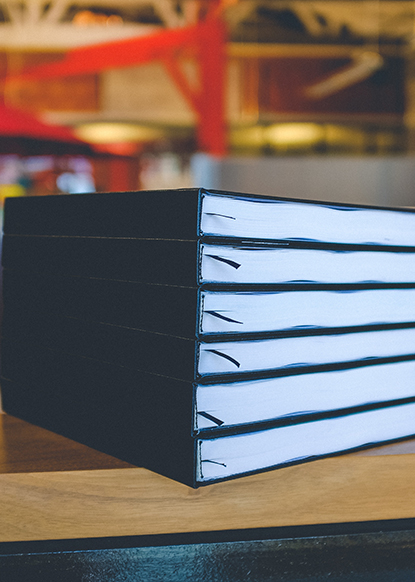 Pre-Registrations Open Now!
Pre-Registrations Open Now!
Did you know that INGSA doesn’t charge conference registration fees?
If you would like to attend INGSA2020, fill out the pre-registration form now to receive more information as it is released.
 Conference Website Now Live
Conference Website Now Live
The INGSA2020 official conference website is now live and will continue to be updated with information for delegates.
See it now for more information and to register.
Abstract submissions open for PV2020 (Preserving & Adding Value to Data)
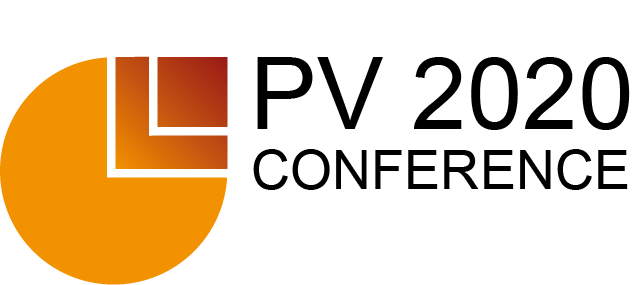 The PV 2020 Conference welcomes you to its 10th edition, to be held 12th – 14th May 2020 at CERN, the European Centre for Nuclear Research.
The PV 2020 Conference welcomes you to its 10th edition, to be held 12th – 14th May 2020 at CERN, the European Centre for Nuclear Research.
CERN is operating the Large Hadron Collider (LHC) and is working on a strategy (as part of the general European Strategy for Particle Physics) that foresees a timeline out until the end of the current century. Some 300PB of data are currently stored in the on-site archive – including data from previous generations of experiments, such as the Large Electron Positron collider (LEP) that took data from 1989 to 2000 – with additional copies at collaborating High Energy Physics institutes around the world.
In contrast to other conferences and workshops on related topics, the PV series has a particular focus on scientific data, often from large scale, multi-national facilities. However, one should not forget that at least a number of the challenges faced are shared with many other disciplines, as is the need for effective collaboration and sharing of ideas and even solutions.
With respect to previous conferences in this series, and whilst maintaining the overall thrust, additional goals for PV2020 include:
- Attracting more scientific communities
- Broadening information exchange, sharing of experiences, tools and even services
- Keeping in step with (or ahead of) funding agencies / policy makers in their push for Long Term Data Preservation and Open Data
As usual, there will be four sessions, this time focussing on the following outline areas:
Session 1: Ensuring long-term data and knowledge preservation (the “P” in PV);
Session 2: Adding value to data and facilitation of data use (the “V” in PV);
Session 3: Short – medium term issues related to policy, technology, guidelines, FAIR / TRUST principles, certification;
Session 4: (Very) long term issues.
A new session (for the PV series) will be a set of “lightning talks” that will have a light-weight review process and for which the call for mini-abstracts will be sent to registered participants after the formal review process of the full abstracts for posters and papers has completed.
Further information can be found here.
Disaster Risk Reduction and Open Data Newsletter: December 2019/January 2020 Edition


UNDRR SRSG Mami Mizutori speaks in Auckland
The Special Representative of the United Nations Secretary-General (SRSG) for Disaster Risk Reduction and the head of the United Nations Office for Disaster Risk Reduction, Mami Mizutori, recently spoke on resiliency and sustainable development at Tonkin + Taylor’s Auckland office. Click above for a link to the livestream video.
Fiji: Cyclone Early Warning System for Pacific goes live
An operational system has been developed and implemented for the Fiji Islands to produce and disseminate new early warning information on coastal flooding, which will help save lives and protect property in low-lying, populated coastal areas. For more on the CIFDP click the link above, and to listen to an interview with Bapon Fakhruddin on the development of the system, click here.
Countdown starts for Sendai 2020 deadline
Target (e) of the Sendai Framework’s seven targets, sets a 2020 deadline for developing national and local strategies for disaster risk reduction. The same deadline applies to UN member states finalising National Adaptation Plans under the Paris Agreement on climate.
Data For Now Inception Workshop in Rwanda
SDSN TReNDS recently joined the World Bank, the UN Statistics Division, The Global Partnership for Sustainable Development Data and representatives from eight very diverse countries (Bangladesh, Columbia, Ghana, Mongolia, Nepal, Paraguay, Rwanda, and Senegal) in Kigali, Rwanda to discuss priority data needs as part of the new Data For Now initiative.
Bangladeshi farmers reap the benefits of new weather forecasts
Customised weather forecasts delivered to smartphones and rural meeting halls are helping farmers in Bangladesh better manage crops in the field as rain becomes more erratic.
Asia and the Pacific set priorities for accelerated disaster risk reduction
In the face of growing disaster losses and risk in the Asia-Pacific region, government disaster risk management agencies, international organizations, and civil society groups met in Brisbane to agree on priorities for accelerating action for reducing the risk of disasters.
NASA Space Data Can Cut Disaster Response Times, Costs
According to a new study, emergency responders could cut costs and save time by using near-real-time satellite data along with other decision-making tools after a flooding disaster.

Yearbook of Global Climate Action 2019
The Yearbook of Global Climate Action 2019 takes stock, highlighting climate action success stories and the need for conditions conducive to stepped-up climate action, while the Climate Action Pathways suggest transformational actions and milestones towards neutrality in key areas, such as energy, industry, transport, human settlements, water, land use, and resilience to the inevitable effects of climate change.
Protecting our world heritage, insuring our sustainable future
The economic and social costs of natural disasters are escalating, and the insurance protection gap is widening. Protecting World Heritage Sites through their core business activities has been unclear to insurers. This guide shows that collaboration is essential and highlights the increasingly important role that the industry needs to play in protecting World Heritage Sites.
Climate Extremes and their Implications for Impact and Risk Assessment
Climate Extremes and Their Implications for Impact and Risk Assessment describes challenges, opportunities and methodologies for the analysis of the impacts of climate extremes across various sectors to support their impact and risk assessment.
UNDRR: Work Programme 2020-2021
The UNDRR Work Programme 2020-2021 outlines the plans to accelerate the implementation of the Sendai Framework for Disaster Risk Reduction. The plans are developed in line with the existing Strategic Framework covering 2016-2021 and focuses on the key results under each Strategic Objective of UNDRR.
Total Warning System for Tropical Cyclones
The IWTC is one of the WMO’s major quadrennial workshop series organised by its World Weather Research Programme (WWRP) and Tropical Cyclone Programme (TCP). The main objectives of these workshops were to examine current knowledge, forecasting and research trends on tropical cyclones from an integrated global perspective, and to report on these aspects while offering recommendations for future forecasting studies and research with special regard to the varying needs of different regions.

EGU General Assembly 2020 – 3-8 May, Vienna, Austria
The EGU General Assembly 2020 will bring together geoscientists from all over the world to one meeting covering all disciplines of the Earth, planetary and space sciences. The EGU aims to provide a forum where scientists, especially early career researchers, can present their work and discuss their ideas with experts in all fields of geoscience.
4th Arab Partnership Meeting for Disaster Risk Reduction (DRR) – 9-10 December – Cairo, Egypt
The 4th Arab Partnership meeting for Disaster Risk Reduction will be held in Cairo, Egypt. The two-day meeting will focus on updating governments and stakeholders on the progress in DRR in the region and will provide an opportunity for governments and partners to discuss the way forward for the region in implementing the Sendai Framework and achieving target E of the Sendai Framework by 2020.
Regional Assessment Report (RAR) on DRR for Arab States 2nd Editorial Committee Meeting (ECM) – 11 December – Cairo, Egypt
The Regional Assessment Report is an important initiative of the UNDRR – Regional Office for Arab States (ROAS) that contributes to the achievement of the Sendai Framework through monitoring risk patterns and trends and progress in disaster risk reduction in the Arab region while discussing various challenges and opportunities for development of Arab countries in DRR. The objective of developing this Regional assessment report is to give an overview on disaster risks in the region based on evidence-based analysis.

November 2019: Publications in the Data Science Journal
November 2019: Publications in the Data Science Journal
 Title: Reviving an Old and Valuable Collection of Microscope Slides Through the Use of Citizen Science Title: Reviving an Old and Valuable Collection of Microscope Slides Through the Use of Citizen ScienceAuthor: John Pring, Lesley Wyborn, Neal Evans URL: http://doi.org/10.5334/dsj-2019-057 |
|
 Title: Efficient Stratified Sampling Graphing Method for Mass Data Title: Efficient Stratified Sampling Graphing Method for Mass DataAuthor: Jianjun Wang, Yingang Zhao, Jun Chen, Suqing Zhang, Xudong Zhao, Yufei He URL: http://doi.org/10.5334/dsj-2019-056 |
|
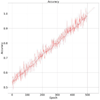 Title: A Comprehensive Video Dataset for Multi-Modal Recognition Systems Title: A Comprehensive Video Dataset for Multi-Modal Recognition SystemsAuthor: Anand Handa, Rashi Agarwal, Narendra Kohli URL: http://doi.org/10.5334/dsj-2019-055 |
|
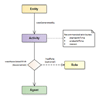 Title: Proper Attribution for Curation and Maintenance of Research Collections: Metadata Recommendations of the RDA/TDWG Working Group Title: Proper Attribution for Curation and Maintenance of Research Collections: Metadata Recommendations of the RDA/TDWG Working GroupAuthor: Anne E. Thessen , Matt Woodburn, Dimitrios Koureas, Deborah Paul, Michael Conlon, David P. Shorthouse, Sarah Ramdeen URL: http://doi.org/10.5334/dsj-2019-054 |
|
 Title: Intelligent Electronic Management of Library by Radio Frequency Identification Technology Title: Intelligent Electronic Management of Library by Radio Frequency Identification TechnologyAuthor: Qinglan Huang, Hongyi Huang URL: http://doi.org/10.5334/dsj-2019-053 |
|
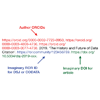 Title: The History and Future of Data Citation in Practice Title: The History and Future of Data Citation in PracticeAuthor: Mark A. Parsons, Ruth E. Duerr, Matthew B. Jones URL: http://doi.org/10.5334/dsj-2019-052 |



